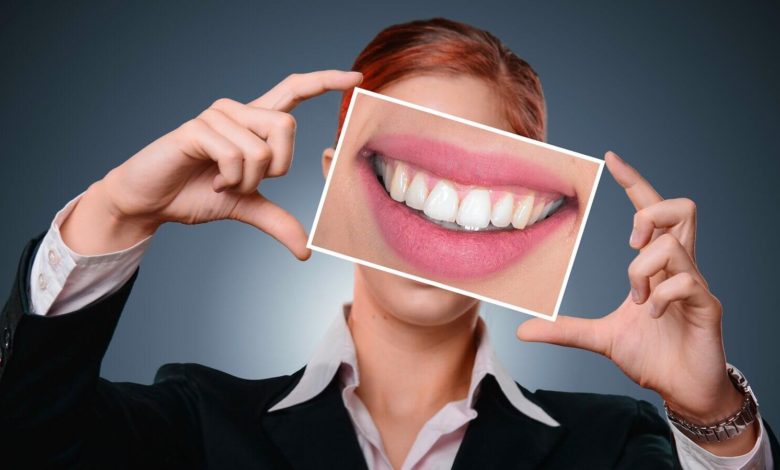What is the Oral Microbiome, How is it Balanced, How is its Link to General Health?

The oral microbiome is a community of microorganisms that are predominantly bacteria found in the mouths of humans and animals. The specific environment of the oral cavity is ideal for the growth of certain microorganisms, as a result, the oral microbiome differs from the gut and skin microbiomes. Key factors in the formation of the oral microbiome include high water, easy access to nutrients, and moderate temperatures. Some microbes are better suited to soft oral tissues, others to harder tissues such as tooth enamel.
The oral microbiome is the second largest human microbial community after the gut. It is believed that 300 to 700 different microbial species live in the mouth of the average person. Researchers in the field of dentistry are particularly concerned with the role of the microbiome in conditions such as caries, oral cancer and periodontal disease, but the true significance of oral microorganisms has only recently been discovered. The oral microbiome can affect a wide variety of systems in the human body, for example, they play an important role in functions such as digestion, metabolism, regulation of blood pressure and preservation of tooth structure.
Bacteria, yeasts, viruses and fungi are found in the oral cavity
The mouth (aka the oral cavity) is considered an important gateway to the rest of the body. Most of the hundreds of billions of microorganisms (some good and some bad) living in the oral cavity are bacteria, while others are yeast, viruses and fungi. Examples of microbes living in the oral cavity include Streptococcus and Corynebacterium species. Microbes cover the surfaces of both teeth, tongue and gums, and each location has a unique composition of microbes. For example, the tongue contains a different community than the gums or teeth because various microbes survive on their surface. Germs are particularly concentrated in dental plaque and on the surface of the tongue. They are considered to be one of the densest microbial habitats in the world.
Various Problems Arise If Microbiota Balance Is Disrupted
A balanced oral microbiota protects the mouth from infections and contributes to maintaining oral health. Oral microbiota can easily be disrupted by factors such as poor oral hygiene, eating habits, smoking, immunodeficiency and aging. Impairments can cause dental plaques, bad breath, tooth decay, mouth ulcers, oral thrush (oral candidiasis), gingivitis (gingivitis) and periodontal diseases such as periodontitis (gum disease). Practicing the right type of oral hygiene, eating healthy, and consuming probiotics are some of the best strategies to care for the community of oral microorganisms.
How is its relationship with health?
Microbiomes (small communities of organisms) are actually ubiquitous in nature and play an important role in determining human health and maintaining diverse ecosystems. The Human Oral Microbiome database catalogs the genomes of a large number of bacterial species found in the human oral cavity. There are some bacteria in the mouth that contribute to overall health, such as facilitating digestion, and others that can contribute to problems such as gum disease, infections and even potentially cancer. Some of the positive roles of microorganisms living in the oral microbiome are:
– Conducting digestive and metabolic processes that support a normal metabolism.
– (For example, some bacteria participate in nitrate metabolism, which helps support healthy blood pressure).
– To facilitate the process of breaking down nutrients through saliva and converting nutrients into energy
– Transport of ionic minerals from saliva around the mouth
– Supporting the remineralization of teeth
– Carrying oxygen to gums and soft tissues
– To fight infections by protecting people from harmful environmental organisms
– Prevention of oxidative stress and inflammation
– Removal of waste products from the mouth surface
Problem Symptoms and Solutions
Certain bacteria, viruses, and fungi that line the oral cavity are linked to unexpected health problems affecting various parts of the body, including heart disease and reproductive problems. This is because some bacteria can pass from the mouth to other parts of the body, including blood vessels and intestines. Oral diseases begin with the growth of dental plaque, a biofilm formed by the accumulation of bacteria and toxins with saliva. Current treatment of oral diseases and dental plaques includes the use of mouthwash, professional cleaning of the teeth and, in more advanced cases, the use of antibiotics or surgery. Nevertheless, due to the increasing antibiotic resistance and undesirable side effects such as antibiotic-associated diarrhea, there is an increasing need for new therapies that do not include traditional antimicrobial agents. Some meta-analyzes have found that the use of probiotics is significantly effective in treating oral health and gingivitis.
The Relationship of Dental Caries with the Microbiome
Many people think that tooth decay is caused by some harmful bacteria, but it is now understood that the causes of problems such as tooth decay and gum inflammation are actually related to imbalances in the oral microbiome rather than the presence of bacteria. In other words, some pathogenic bacteria do not cause problems for someone with a generally healthy microbiome, but can trigger the disease in others who do not have enough healthy bacteria to counteract the effects of pathogens.
What Causes the Link Between Oral Microbiome and Cancer?
Oral cancer is thought to be caused in part by the effects of harmful bacteria in the mouth. Some research suggests that a common mouth bacteria known as Fusobacterium nucleatum may also play a role in the development of colon cancer. Such bacteria can penetrate the cheeks and invade the immune system, many of which are found in the gastrointestinal tract. Bacteria such as Fusobacterium nucleatum may play a role in the development of cancer by contributing to inflammation and free radical damage.
How to Balance the Oral Microbiome?
Maintaining balance in the oral microbiome can help prevent some bacteria and other microbes from “maltreating” and contributing to disease. Steps that can be taken to help improve oral microbiome health include:
1-Smart Oral Hygiene Application
While cleaning the inside of the mouth too much can actually contribute to problems, it is thought that interdental cleaning, which includes using dental floss, brushing with natural toothpaste, and sometimes using toothpicks, helps support the balance in the oral environment. Some harsh products, such as some toothpastes and mouthwashes used, contribute to the dysfunction of the microbiome by eliminating beneficial bacteria in the mouth. Detergent-based dental, including those made with questionable ingredients such as sodium lauryl sulfate (SLS), sodium fluoride, triclosan, propyl glycol, artificial sweeteners (such as sodium saccharine, aspartame, xylitol and erythritol), artificial colorants, diethanolamine (DEA) He recommends avoiding products such as pastes and antiseptic mouthwashes that contain alcohol.
2- Probiotic Consumption
Probiotic supplements and foods can help fill the mouth with friendly bacteria, as well as support the health of the gut. They work by forming a protective biofilm that supports the health of teeth and gums and reduces inflammation, while preventing bad bacteria from reaching tooth enamel or sensitive tissues. They can also help change the pH of the mouth to stop the growth of cavities or caries and improve saliva quality to promote the remineralization of tooth enamel. Dentists believe that oral microbiome probiotics are most effective when administered directly into the mouth in lozenge, milk, or chewable form. The types of oral microbiome probiotics considered to be most beneficial for oral health and recommended to be taken for at least two to three months are:
-Lactobacillus salivarius
– L. reuteri
– Streptococcus salivarius K12 and M18
– L. sakei
– L. brevis
– L. acidophilus
– L. rhamnosus
– L. reuteri
– L. casei
– Bifidobacillus
– S. thermophilus
While intestinal probiotics are usually taken in tablet / capsule form, oral probiotics can be taken as a drink, mouthwash, lozenge, and chewable tablet. Ideally, an oral probiotic supplement of at least 3 billion CFU should be preferred and taken in the morning before eating.
3-A Nutrient-Intensive Nutrition
Nutrition is the most important way of removing microorganisms from the environment. For example, eating plant foods such as vegetables and fruits provides not only nutrients but also some dirt, water and bacteria. Some foods help the growth of beneficial bacteria, while others support the growth of pathogens and harmful bacteria. Foods that should be emphasized in the diet are alkalizing, anti-inflammatory and high-antioxidant foods. The following foods should be consumed regularly to support oral health:
– Green leafy vegetables
– Fruits, citrus fruits and other fruits
– Cruciferous vegetables such as broccoli, black cabbage, cauliflower as well as all fresh vegetables
– Organically grown meat, poultry and eggs
– Naturally caught fish
– Healthy fats such as olive oil, avocados, nuts and seeds
– Algae and algae
– Probiotic, fermented foods such as yoghurt, kefir, kombucha, sauerkraut and pickled dill
– Prebiotic foods such as onions, leeks, dandelion greens, garlic, artichoke, chicory root, asparagus, apple and flaxseed
– Plenty of water, herbal teas and green / black tea, and coffee in moderation
– Avoid consuming too much sugar and refined carbohydrates, especially from sugary drinks and highly processed foods. Some types of bacteria thrive on a high-sugar diet and then contribute to tooth and gum related diseases such as tooth enamel erosion and tooth decay.
4-Holistic Approach to Oral Health
It may not seem obvious that there is a relationship between lack of exercise, chronic stress, and poor oral health, but it is known that an overall unhealthy lifestyle and too much stress can lead to a reduction in saliva. Changes in saliva affect how well microbes transport minerals such as phosphorus and calcium from saliva to tooth enamel, and can also create a more acidic environment in the mouth that changes the overall ecosystem. Stress can trigger dry mouth, loss of appetite, TMJ syndrome (jaw joint disorder), teeth grinding, and other problems affecting the mouth and jaw. Managing stress and getting adequate exercise are important for keeping inflammation in check. Exercises such as yoga and meditation and other mind-body practices can help reduce the stress-induced, inflammatory fight or flight response that causes the immune system to be weakened. Exercise is also beneficial for increasing circulation and detoxification through the lymphatic system, which helps the teeth, gums and tissues in the mouth to stay in good condition.
In summary, the human oral microbiome refers to the small community of microbes that live in the human mouth, including teeth, tongue, palate, cheeks, plaque, throat, and gums. Experts believe that different parts of the mouth have different bacterial communities, and the way these communities interact with each other is crucial to overall health. To help maintain oral balance, dental floss should be used in addition to soft, natural cleaners in the mouth, a healthy diet should be avoided, too much sugar should be avoided, probiotic intake should be increased, exercise should be done and stress should be managed well.





